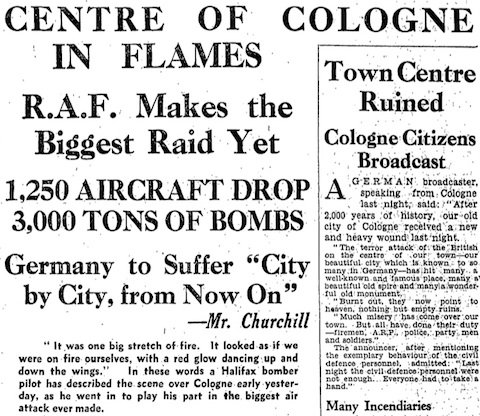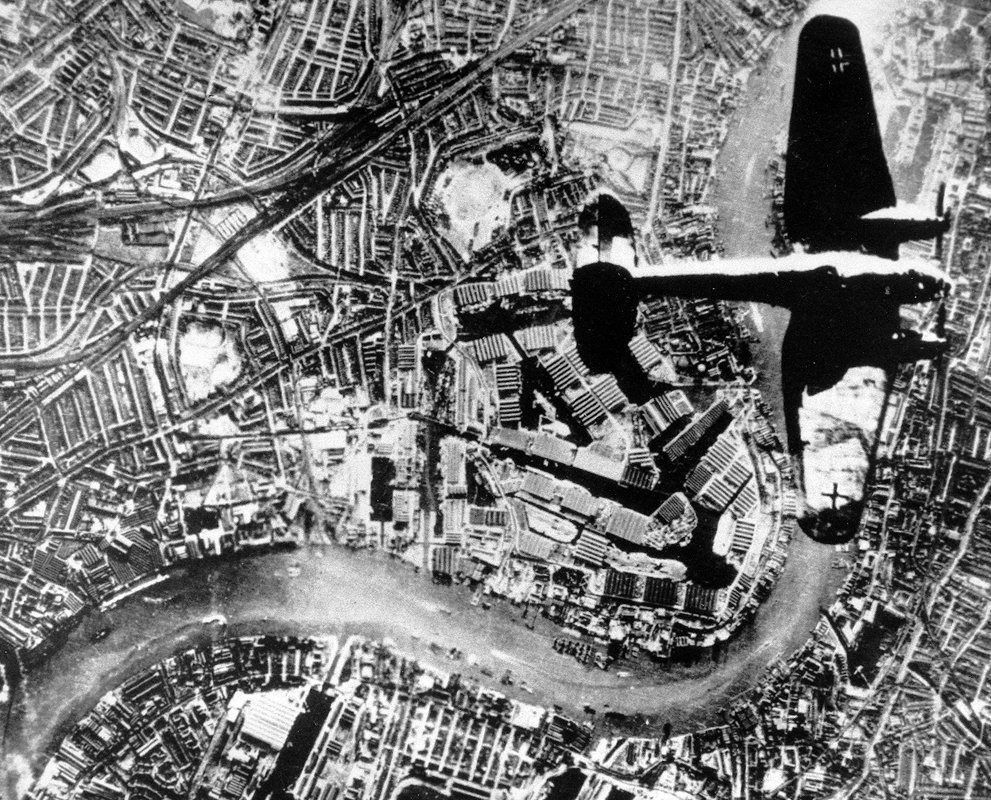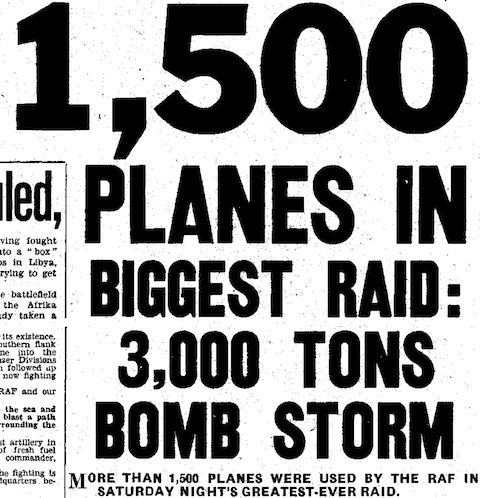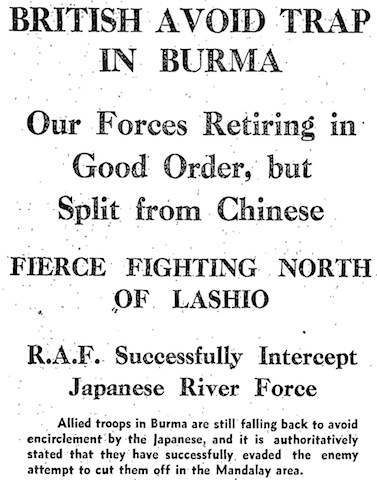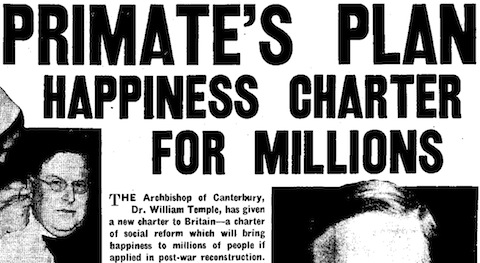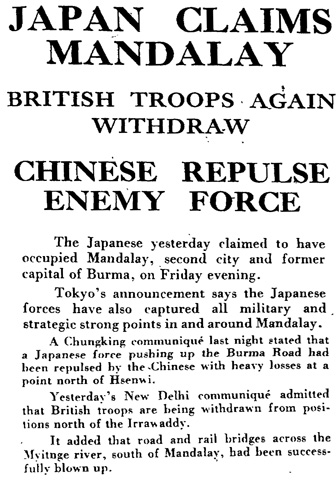After Millennium — II
Picking up where I left off nearly a month ago, let’s turn to the reaction of the provincial press to the thousand bomber raid on Cologne on the night of 30 May 1942. The Yorkshire Post‘s main front page story on 1 June 1942 (above) concentrated on the operation itself. It claimed that ‘CONSIDERABLY more […]


